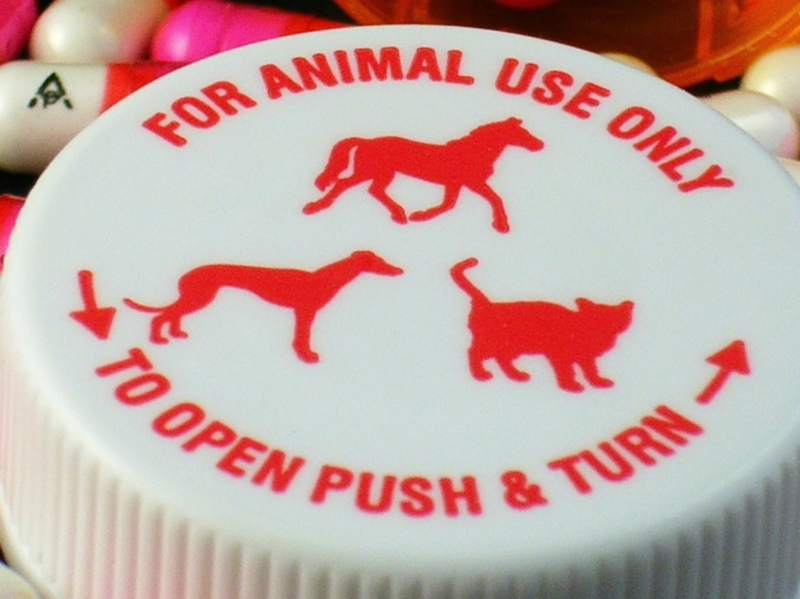Freezer Storage Unlocked: Preserve its Efficiency
Posted on 29/05/2025
Freezer Storage Unlocked: Preserve its Efficiency for Optimal Freshness
Have you ever opened your freezer only to find a snowy build-up, unrecognizable leftovers, or wilted veggies that should have lasted much longer? Freezer storage efficiency is crucial not just for food preservation and minimizing waste, but also for keeping your energy bills in check. In this comprehensive guide, we'll unveil expert tips and proven strategies to unlock your freezer's storage potential and preserve its efficiency for years to come.

Why Efficient Freezer Storage Matters
The humble freezer is often overlooked, yet it plays an essential role in modern kitchens. From extending the shelf life of perishables to enabling meal prep and bulk shopping, a well-organized and efficiently running freezer can save you time, money, and stress. Learning how to maximize freezer storage while maintaining operational efficiency benefits:
- Food Safety - Prevents spoilage, contamination, and foodborne illnesses.
- Cost Savings - Reduces waste and energy consumption.
- Convenience - Makes it easier to find and access food quickly.
- Preservation of Nutrients - Ensures you get the full nutritional value of your produce and proteins.
Understanding the Mechanics: How a Freezer Works
To truly preserve your freezer's efficiency, it helps to understand its function. Unlike a refrigerator, a freezer maintains temperatures typically below 0?F (-18?C). It utilizes compressors, coils, and insulation to pull heat away, keeping your food safe from bacterial growth and locking in flavor for months--even years for some goods.
- Compressor and Coil System: These work together to draw out heat and keep the inside frigid.
- Insulation: Prevents external temperatures from affecting the internal environment.
- Thermostat: Maintains consistent internal temperatures.
A sudden spike in internal heat--say, from overfilling, frequent opening, or faulty seals--can compromise the quality of your food and the lifespan of your appliance. That's why routine maintenance and intentional freezer organization are key.
Smart Strategies for Freezer Storage Unlocked
1. Declutter and Deep Clean Regularly
An overcrowded, untidy freezer is not just inefficient--it's a breeding ground for freezer burn and odors. Start by fully defrosting (if needed) and clearing everything out. Toss expired items or anything unidentifiable.
- Wipe Down Surfaces: Use mild detergent and warm water.
- Deodorize: Place an open box of baking soda inside to absorb lingering smells.
- Defrost: If ice buildup is more than 1/4 inch, defrost your unit to improve performance.
A clean slate unlocks the foundation for optimized freezer storage efficiency.
2. Organize for Accessibility and Airflow
Airflow is a secret ingredient for an efficient freezer. Avoid stacking items haphazardly or filling it to the brim. Here's how to maximize both space and cold circulation:
- Use bins or baskets: Group similar items (meats, veggies, prepared meals) for quick access and to avoid "freezer excavation."
- Label everything: Use waterproof markers or freezer labels to note what the item is and the storage date.
- Allow for air gaps: Leave about 1/2 inch between the walls and stored items. This lets cold air move efficiently and preserves temperature consistency.
- Don't overstuff: Aim for 70-85% full--a full freezer runs more efficiently than a near-empty one due to thermal mass, but overfilling impedes circulation.
3. Master the Art of Packaging
Packaging plays a crucial role in freezer performance and food quality. Poor packaging leads to freezer burn, dehydration, and flavor loss. To unlock optimal results:
- Use airtight containers and freezer bags: Squeeze out excess air to minimize ice crystal formation.
- Vacuum-seal when possible: This provides the best barrier against freezer burn and oxidation.
- Portion control: Freeze in meal-sized portions to avoid the need to thaw and refreeze large batches, risking quality.
- Lay bags flat: For efficient storage, freeze items flat and then "file" vertically once frozen solid.
4. Freeze the Right Way: Temperature and Techniques
For maximum freezer efficiency and food safety, set your freezer temperature at or below 0?F (-18?C). Consistency is critical; wide swings stress the compressor and allow for microbial growth.
- Don't put hot food directly in: Let leftovers cool to room temperature before freezing to avoid overwhelming the unit.
- Quick freeze setting: If your unit offers it, use the fast-freeze function for fresh food items to minimize ice crystal size and preserve texture.
- Invest in a freezer thermometer: Built-in thermostats may not always be accurate. A dedicated thermometer gives you peace of mind.
5. Rotate and Inventory Regularly
How many times have you found an ancient pack of peas buried in the back? To maintain maximum efficiency:
- First-in, first-out (FIFO): Newly added items go to the back or bottom so older ones are used first.
- Keep an inventory: Post a simple list on the freezer door so you know what's inside at a glance.
- Regular audits: Set a monthly calendar reminder to check for expiring items and rearrange as needed.
Essential Maintenance Tips to Preserve Freezer Efficiency
Even the best-organized freezer requires a bit of maintenance to keep it efficient and prolong its lifespan. Here's how to give your freezer the TLC it deserves:
Check and Clean Seals
The gasket (rubber seal) around the door is what keeps cold air in and warm air out. Dirt, debris, or worn-out gaskets compromise your freezer's energy efficiency.
- Inspect monthly: Look for cracks, warping, or mildew.
- Clean with warm soapy water: Never use harsh chemicals that could degrade the rubber.
- Test the seal: Close the door on a dollar bill halfway; if you can pull it out easily, it's time to replace the gasket.
Keep the Coils Clean
Dusty condenser coils (usually behind or beneath the freezer) force your appliance to work harder. Vacuum or gently brush them every six months to ensure maximum cooling efficiency.
Maintain the Right Location
Where your freezer lives can affect its performance. Avoid placing it next to heat sources (stoves, dishwashers, direct sunlight).
- Allow for air circulation: Ensure a few inches of space around all sides of the unit.
- Level the freezer: An uneven freezer door might not seal properly, leading to energy loss.
Solving Common Freezer Storage & Efficiency Issues
Even with your best efforts, you might encounter some common problems. Here's how to address them:
Problem: Frost Buildup
- Frequent opening can cause humid air to enter and freeze. Limit door openings and don't leave the door ajar.
- Leaky seals can let warm air in. Replace damaged gaskets promptly.
- Manual defrost freezers need regular maintenance. Follow manufacturer guidelines to thaw and clean away frost.
Problem: Unpleasant Odors
- Store aromatic foods in airtight containers or double-bag.
- Regularly deodorize with baking soda or charcoal briquettes.
- Clean spills immediately before they freeze and become stubborn stains.
Problem: Food Freezing Together or Getting Crushed
- Pre-freeze small items (like berries or meatballs) on a tray before bagging together.
- Do not stack delicate foods until frozen solid.
Problem: Increased Energy Bills
- Overfilling, underfilling, and poor placement can all impact energy use.
- Check the door seals, temperature setting, and location of the unit.
- Upgrade to an Energy Star-rated freezer if your current one is a decade old or more.
Pro Tips: Take Your Freezer Storage to the Next Level
- Label with erasable markers: Mark containers with names and dates that you can update, ensuring food stays within best-by dates.
- Freeze in useable portions: Pre-slice bread, divide stew into single servings, or portion smoothie-ready fruit. This avoids partial thawing and re-freezing.
- Use stackable containers: These maximize vertical space and improve organization for small freezers.
- Keep a backup ice block: If you have space, keep a small block of ice or frozen gel pack. This helps maintain freezing temps during a power outage.
What Not to Freeze
Not everything thrives in the freezer. Avoid storing:
- Raw eggs in the shell (they will crack)
- High-moisture veggies (lettuce, cucumbers, celery--these get mushy)
- Cream-based sauces (they can separate or curdle)
- Soft cheeses (may become crumbly and lose flavor)
- Sour cream or yogurt (often separates)
The Environmental Impact: Energy-Efficient Freezer Practices
Unlocking your freezer's storage efficiency is also good for the planet. Efficient freezers use less energy, reduce greenhouse gas emissions, and help you make the most of every grocery trip.
- Upgrade to an energy-efficient model: Newer freezers consume less power and include features like fast freeze and better insulation.
- Adopt eco-friendly packing materials: Opt for reusable silicone bags or hard containers over single-use plastics.
- Reduce food waste: Thoughtful planning and storage mean more food on your plate and less in the landfill.

FAQs: Freezer Storage Unlocked and Explained
How should you store meat in the freezer to preserve efficiency?
Wrap tightly in freezer-grade paper or vacuum-seal for best results. Always label with the cut and date. Place heavier packages at the bottom and use within 6-12 months for optimal quality.
Why does my freezer keep frosting over?
Common causes include faulty door seals, frequent door openings, or storing hot/wet food. Address these issues promptly and defrost regularly if necessary.
Is it better to keep a freezer full or empty to maintain efficiency?
A fuller freezer holds cold better, but never overstuff to the point where air can't circulate. If you have lots of empty space, use bottles of water to maintain thermal mass.
Can vegetables be frozen raw?
Many veggies (like green beans, broccoli, and carrots) benefit from blanching before freezing. This inhibits enzymes and preserves color and texture. Cool after blanching, dry well, and pack in airtight containers.
Unlock Your Freezer Storage, Preserve Efficiency--Enjoy Peace of Mind
Freezer storage unlocked doesn't require a degree in engineering--just a little knowledge, a few strategic tools, and a commitment to regular maintenance. By keeping your freezer clean, organized, and running in top form, you'll protect your food investment and enjoy safe, delicious meals any time of year.
Implement these freezer storage and efficiency tips today, and discover a new level of convenience in your kitchen--one where spoiled food and sky-high energy bills are things of the past!






